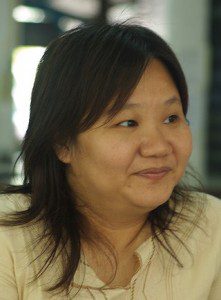The ASEAN Human Rights Declaration: Light on free speech
On Sunday, the world prepared for President Obama’s first-time visit to the summit of the Association of Southeast Asian Nations (ASEAN). But underneath the press torrent was a lesser-known event: the leaders of the 10 member states of the regional bloc signed the much-lamented ASEAN Human Rights Declaration (AHRD). Freedom of expression, internet privacy, and minority rights are all potential casualties of this document, which amounts to an assortment of titular but pleasant-sounding logorrhea — designed largely by dictators in a region where free expression is, in most countries, on the decline.
The first conundrum? In declaring its broader principles, the charter annuls itself when it states that human rights should be respected everywhere, except that they shouldn’t:
All human rights are universal, indivisible, interdependent and interrelated. All human rights and fundamental freedoms in this Declaration must be treated in a fair and equal manner, on the same footing and with the same emphasis. At the same time, the realisation of human rights must be considered in the regional and national context bearing in mind different political, economic, legal, social, cultural, historical and religious backgrounds.
That’s a huge exception that governments can play with. The US State Department called out concerns of ASEAN’s cultural relativist approach to human rights, a term that labels individual liberties as culturally alien to Asians. It’s a common justification used to curtail expression, made famous when former Prime Minister Lee Kuan Yew of Singapore argued at the end of the Cold War that liberal democracy was a Western value that should not be brought to certain countries.
The declaration also employs the obfuscating language of “national security,” “public order” and “public morality” as prerequisites to exercising basic freedoms. Narrowing that framework down to free speech, the declaration reads, for instance: “Every person has the right to be free from … attacks upon that person’s honour and reputation.” Though not legally binding, those phrases lend legitimacy to the wording that Cambodia, Vietnam, and Thailand typically use when jailing critics.

Mam Sonando, director of Cambodia’s independent Beehive Radio station, who was jailed for 20 years in October
“They can say that we banned such-and-such speech because it goes against our national context, or contravenes a vaguely defined notion such as ‘public morality’ or the ‘general welfare of the peoples in a democratic society’,” said Phil Robertson, deputy director of the Asia Division at Human Rights Watch, “or because those making the speech have their rights balanced by duties to the state to not do such a thing.”
In a region where online surveillance is, in most member states, on the rise, internet privacy gets no mention. The Cambodian Center for Human Rights also pointed out that indigenous and LGBT groups appear to have been left out of specific protections from discrimination and the principle of equality. In Southeast Asia, minorities such as the Rohingya, Wa and Shan in Myanmar, the Papuans in Indonesia, and the potpourri of highland groups often called “Montagnards” in Vietnam have all been persecuted in military and police campaigns, and denied cultural rights.
The triumph of local laws over international concepts of rights should not be surprising from a bloc that is sclerotic and, in the past, has been characterised as a “club of dictators.” ASEAN’s background shows why it straddles this non-interference line on its sovereigns: The organisation was born in 1967 out of the devastation of the Vietnam War, when five countries in Southeast Asia were hoping to tether in an anti-communist grouping that could stand on its own against the involvement of the US, the Soviet Union and China.
But its espousal of “territorial integrity” — of respecting a government’s right to rule without the Cold War-style interference from external powers — quickly became an excuse to back dictators in alliances of convenience. In the late 1970s, ASEAN supported the murderous Khmer Rouge forces at the Thai-Cambodia border, which had already overseen the deaths of 1.7 million people in Cambodia. They hoped the rag-tag army could be a buffer to prevent the powerful Vietnamese military from marching across Thailand — a fear that, in hindsight, was probably not justified, even though Vietnam had invaded Cambodia in 1978.
After the Cold War ended, the group switched its focus from security to trade and expanded its membership to include Cambodia, Burma, Brunei, and nominally communist Vietnam and Laos. But political openness has not accompanied economic growth in Southeast Asia. Rather, the group’s foundational peg of “non-interference” remains unchanged despite signing the 2008 ASEAN Charter, and its delegates continue to defer to national governments on questions of free expression.
With that said, does the human rights declaration even matter on free speech issues? Probably not, given the bloc’s chimera of consensus that, put bluntly, is indifference.
Free speech will come from inside the ASEAN member states themselves, rather than from the bureaucrats who exchange flowers, link their hands together in photo ops and call each other “Your Excellency” at summits.
Geoffrey Cain is an editor at New Mandala, the Southeast Asia blog at the Australian National University

